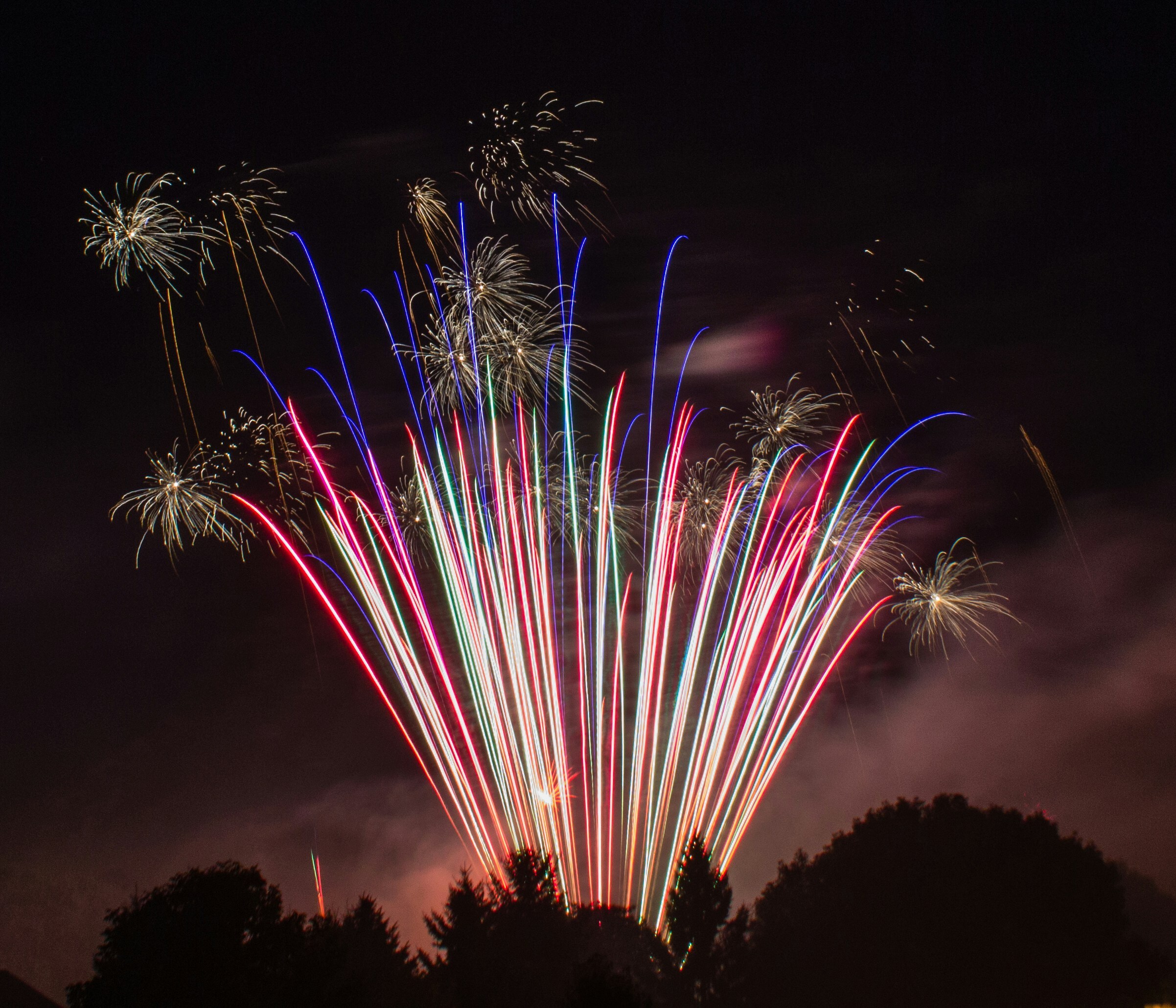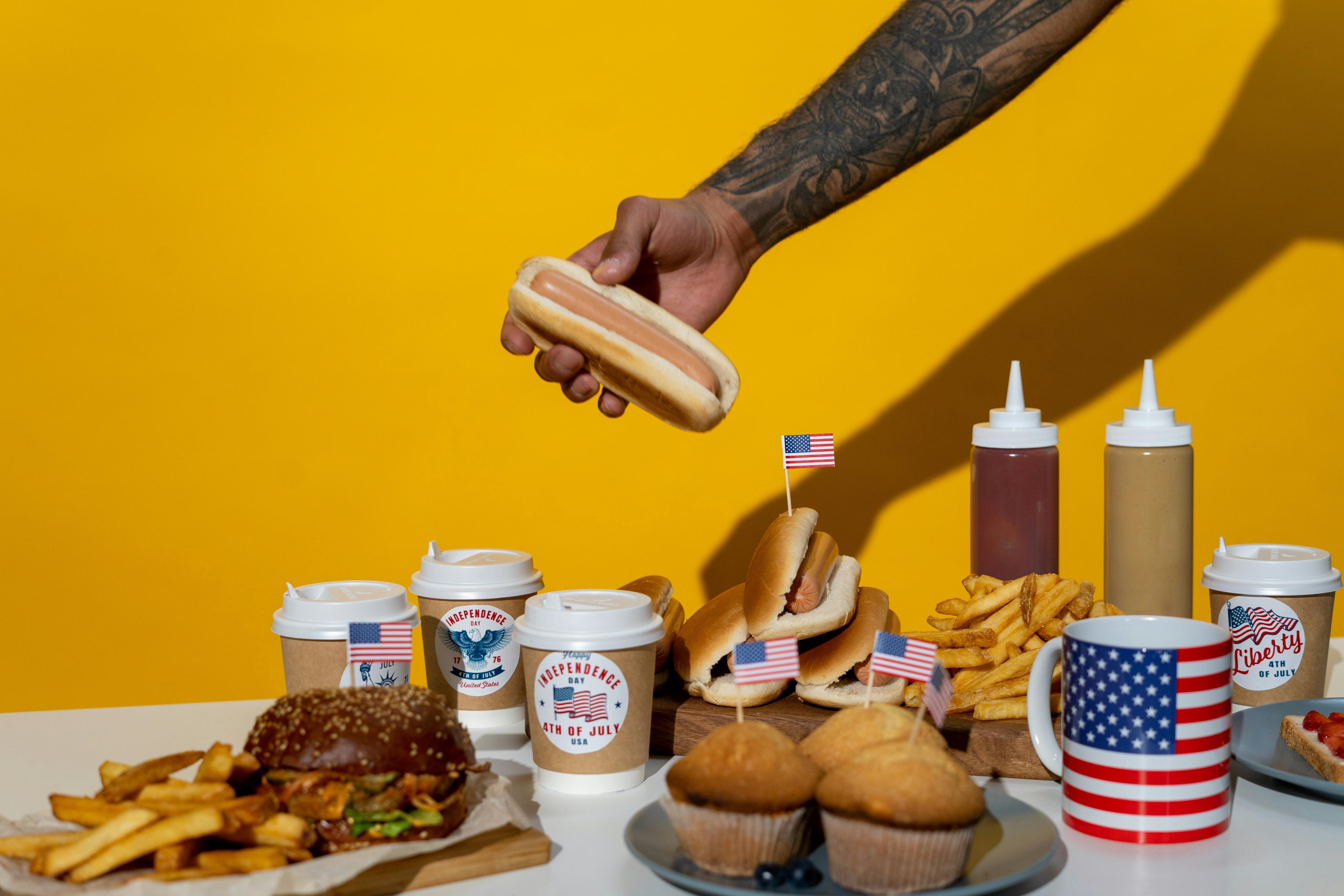How France influenced Independence Day
Posted by Josh on 2nd Jul 2025 in the blog in the french culture category
Introduction
On 4th July every year, Americans come together to celebrate the founding of the American nation with fireworks, concerts and family get-togethers. It's a distinctively American tradition - but what many don't realise is that the celebration and what it stands for were also heavily influenced by the French.
In fact, Independence Day has much in common with Bastille Day, France's annual celebration of the birth of the French Republic, which happens just ten days later on the 14th July. Both events celebrate the success of their respective revolutions, enshrining the establishment of a new order founded on liberty and equality.
Of course, while American Independence came about the in 1776 (off the back of a Revolution that began in 1765), the French Revolution did not begin until 1789, and the First Republic was not established until 1804. While the French Revolution happened as a result of homegrown issues around inequality and declining standards, its protagonists were heavily inspired by the success of the American Revolution. 'In the United States,' wrote the Marquis de Lafayette, 'the sovereignty of the people [is] exercised by free, general, and frequent elections…Ten million people, without a monarchy, without a court, without an aristocracy...have acquired the highest degree of freedom, security, prosperity, and happiness, which human civilization could have imagined.' The transatlantic influence continued long after, epitomised by Alexis de Tocqueville's forays into the newly born United States in the mid-19th century.
The influence was mutual, however, as the leaders of the American Revolution were also largely inspired by French republican ideals that were in circulation before the fall of the House of Bourbon in France. The influence wasn't only on the intellectual level but also on the military level, as American forces were greatly helped by French forces in their struggle against the British. It is possible that without French help - both direct and indirect - the American Revolution may never have happened, or at least happened at a later stage and on a different date.
What is Independence Day?
American Independence Day, which is celebrated every year on the Fourth of July, is a national holiday in the United States that commemorates the adoption of the Declaration of Independence on July 4, 1776.
It marks the day the 13 American colonies formally declared their independence from British rule, founding the new nation of the United States of America. Celebrations occur across the country, from lavish firework displays (often featuring the colours of the American flag: red, white and blue) and military parades to social gatherings such as barbecues and parties. The President of the United States also typically addresses the nation.
How French ideas helped inspire American Independence
The spirit of the American Revolution was distinctively egalitarian. It eschewed the hierarchical social structures of aristocracy and monarchy and emphasised the rights of all individuals. These ideas did not come from nowhere. Rather they can be traced back to the European Enlightenment, specifically the radicals ideas of French philosophers from the 17th century onwards.
A significant contribution to Enlightenment philosophy was the writings of Swiss-born philosopher Jean-Jacques Rousseau, whose notion of the 'social contract' envisaged society as a collective enterprise shaped by all citizens - an idea which heavily informed the Founding Fathers' efforts to establish a new kind of country unfettered from the aristocratic systems of Europe at the time, which they viewed as insufficiently democratic. The popular ideas of Charles Montesqiueu also helped shape the new republic. His book 'The Spirit of the Laws' for example directly influenced the Constitution by advocating for a republican system of government with a separation of powers, while Voltaire - who was read more widely in America than any other French philosophe - inspired the First Amendment to the Constitution with his progressive views on free speech.
How the French helped the Americans fight
Today, France is considered American’s oldest ally. Indeed, the French were allies of America before the country even existed, as they helped the fledgling nation fight against the British in their struggle for independence.
At the time, the French and British Empires were rivals competing for power in North America - and across the world. But there was an ideological component to the alliance too, as the French were sympathetic to the Enlightenment ideals underpinning the Revolution, even before France underwent its own revolution at the end of the century. While Louis XVI was initially sceptical of the American revolutionaries, he eventually came to support them, having signed the Treaty of Alliance in 1778, although he is alleged to have said at the time "I have taken a decision that will perhaps be the ruin of my kingdom." (The quote is apocryphal, but nonetheless turned out to be true.)
The most famous French combatant was the Marquis de Lafayette, a young French nobleman, who volunteered to fight with the Continental Army. He became one of George Washington’s most trusted generals, and went on to assist American troops at numerous battles, including the Siege of Yorktown. He was an active participant in French politics after the French Revolution.
It is arguable that the Americans may not have succeeded in their struggle for Independence without the aid of the French, who contributed tens of thousands of soldiers and sailors to the effort, as well as more than 60 warships. At the same time, the French were conducting other skirmishes with the British army and navy around the world, stretching Britain’s resources thin.
Independence Day in France
Independence Day is not widely celebrated in France. It is, after all, an American holiday, and there is no significant American diaspora community in France. That said, America's cultural influence through film, TV, the Internet and other media means that most French people are aware of Independence Day, and may choose to tune in to American celebrations. Television channels will often televise American parades and firework shows, and it's not uncommon for some people in France to tuck into some American foods like hot dogs or burgers while watching (even if it involves staying up in to the night. There's a six hour timezone difference between France and East coast America, after all, and a nine hour timezone difference between France and the west coast!)
Some expat communities in places like Paris, Nice, and Bordeaux arrange parties on 4th July, and the American embassy in Paris will often host some events on this too, with everyone welcome to attend.
Check out some of our other blog posts!
Festive French Vocabulary
Posted on by Josh in the learning french categoryHow many of these words do you know?
Read moreTips to avoid cabin fever during self-isolation
Posted on by Nancy in the learning french categoryA lot is still unknown about the coronavirus right now, and many countries and cities are implementing lockdowns and many are taking it upon themselves to practise social distancing by self-isolating for a minimum of fourteen days.
Have fun learning French Today
People from all over the world enjoy learning French with Alexa Polidoro’s popular French audio and video lessons.




